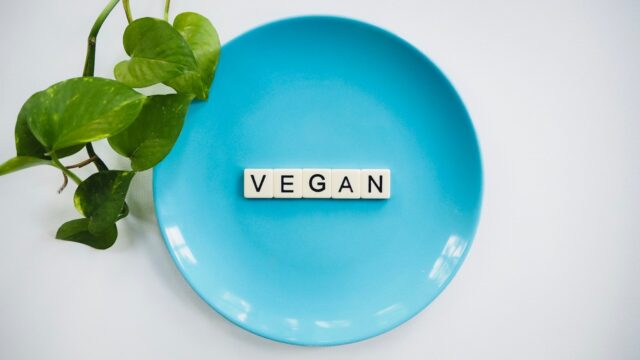
Gut health is an increasingly important area of health, with up to 70% of our immune system being inside the gut, and an estimated 90% of our serotonin receptors also residing there. So when it comes to protection against seasonal flu, colds, and even your risk of suffering from depression, eating gut-friendly vegan foods will plan an important role.
Digestion isn’t just a case of taking food from your mouth and getting it into your stomach as fast as possible. It’s about building your immunity, improving mental health, and fuelling your body with optimal energy, without suffering from common digestion problems like GERD, Celiac Disease, IBS, gas, bloating, or even just brain fog.
Here’s 5 powerful vegan foods that will assist you on your health journey:
1. Sauerkraut
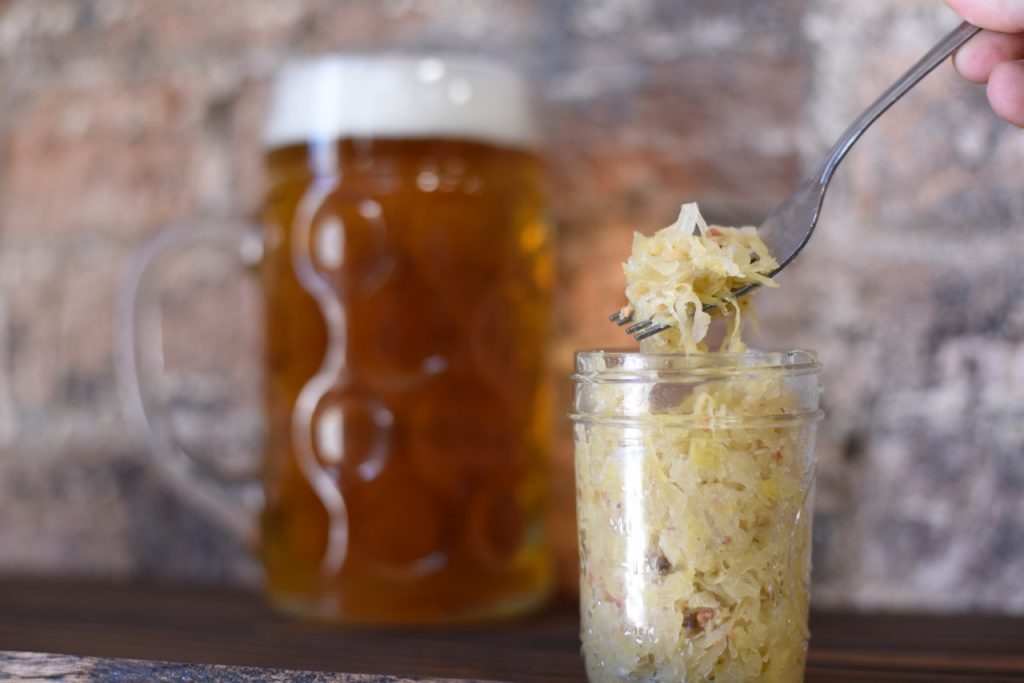
Sauerkraut is a serious health food for your immune system, being packed with iron and vitamin C, both of which are major contributors to a healthy immune system.
Moreover, sauerkraut is a strong probiotic food that increases the strength of your gut lining and prevents unwanted substances from ‘leaking’ into your body.
It feeds the positive bacteria, which leads to all kinds of positive effects in the body. Some doctors even say that it’s a really effective mood booster (probably due to the serotonin receptors in the gut).
It’s also incredibly easy to make at home, using just green or white cabbage, sea salt, caraway seeds, and peppercorns. Make this in bulk, and you’ve got a gut-friendly, anti-oxidant food on hand for weeks or even months(!) in the fridge.
This is important because whenever you open the fridge, you’re seeing healthy foods that will improve your life in every way, and if you’ve got kids, then they’re likely to benefit from this too.
2. Kimchi
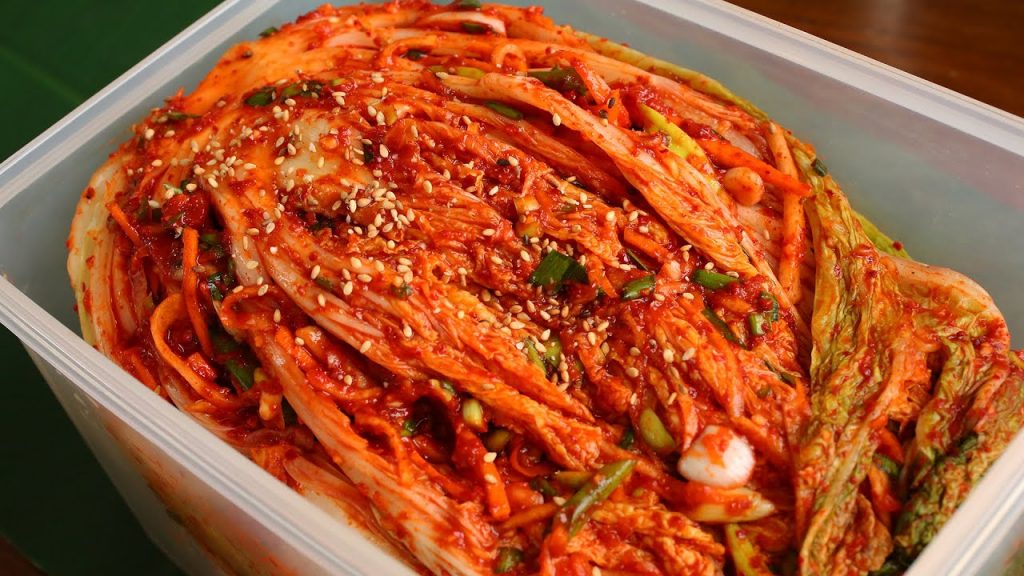
Making kimchi is actually pretty similar to sauerkraut, but with some extra ingredients like garlic, ginger, spring onions, radishes and vinegar. It can be kept in the fridge for up to two weeks.
Kimchi is also incredibly nutrient-dense, boasting vitamin A, C and a whole host of different minerals. It also goes through an extended fermentation process, meaning that it creates an environment for gut-friendly bacteria to thrive.
Probiotics are of course included in this, and offer enormous health benefits when consumed in large quantities. These can include mental health, heart health, and even protection against certain cancers. Kimchi truly is the complete vegan health food.
3. Water Kefir
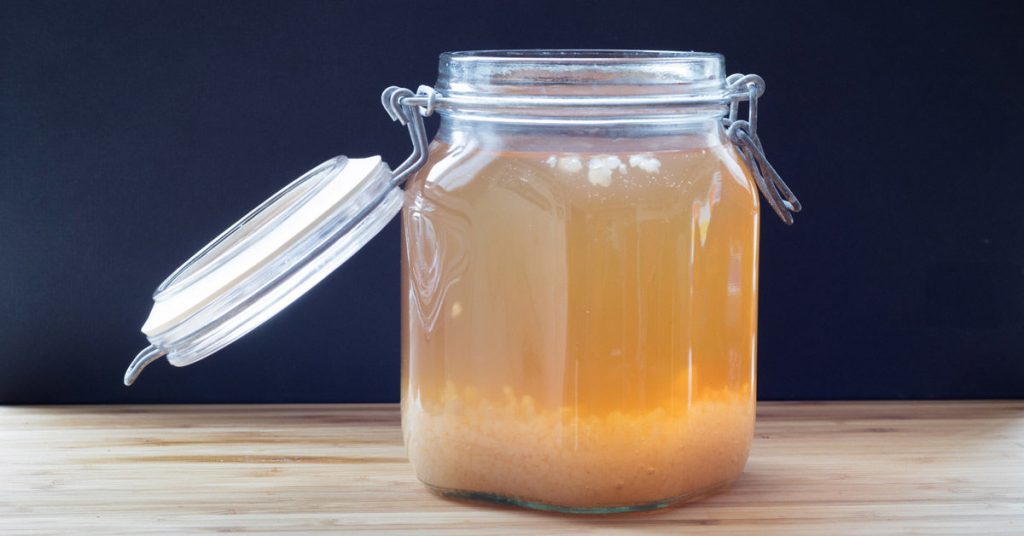
Water kefir is a probiotic drink, and one that tastes quite nice in my opinion, and is a personal favourite on this list. You can get these online, or from a variety of health food stores.
Again, water kefir is heavy in probiotics, and the grains used to make water kefir are considered to be one of the best dietary sources of probiotics. It’s considered to be even better than yoghurt (which is great news for vegans), due to the diverse range of bacteria and yeast it provides. Water kefir may contain up to 56 different variations of yeast.
The benefits don’t just stop there. By improving gut health and solidifying the immune system, kefir extract has also been shown to help fight the growth of breast cancer cells.
4. Kombucha
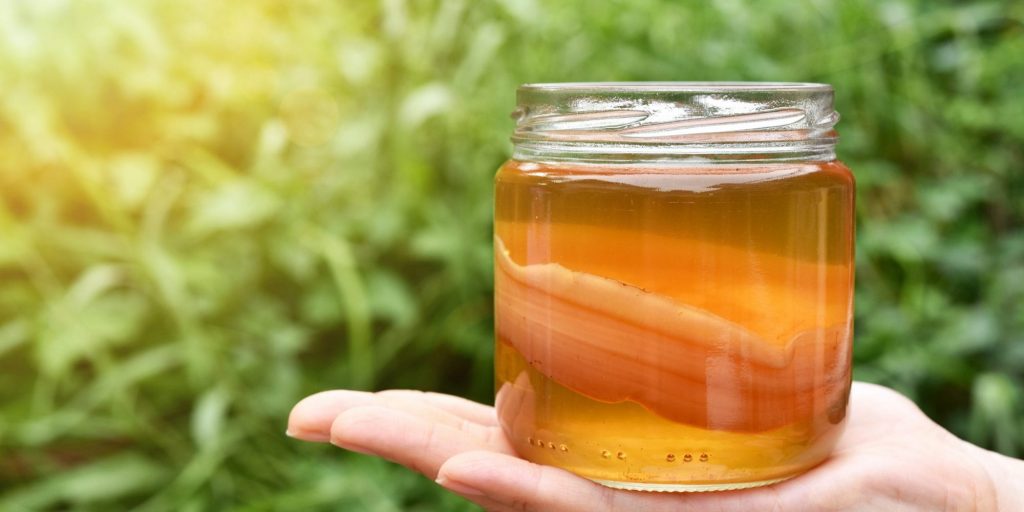
Kombucha is a fermented tea that has been popular for a very long time throughout Chinese history. It tastes nice, has all the normal benefits of tea, plus the probiotics. This is definitely something simple that you should consider incorporating into your daily morning routine.
Kombucha tea is made by adding several strains of yeast and bacteria to black or green tea, and allowing it to ferment for a week. Meaning that if your Kombucha tea is made with green tea, you’re getting all the benefits of green tea in addition to the probiotics. Meaning; anti-oxidants, anti-aging, brain function, accelerated fat loss etc.
Many bacteria grow during this fermentation process, along with several acids and lactic-acids that may be beneficial for your gut health.
5. Tempeh
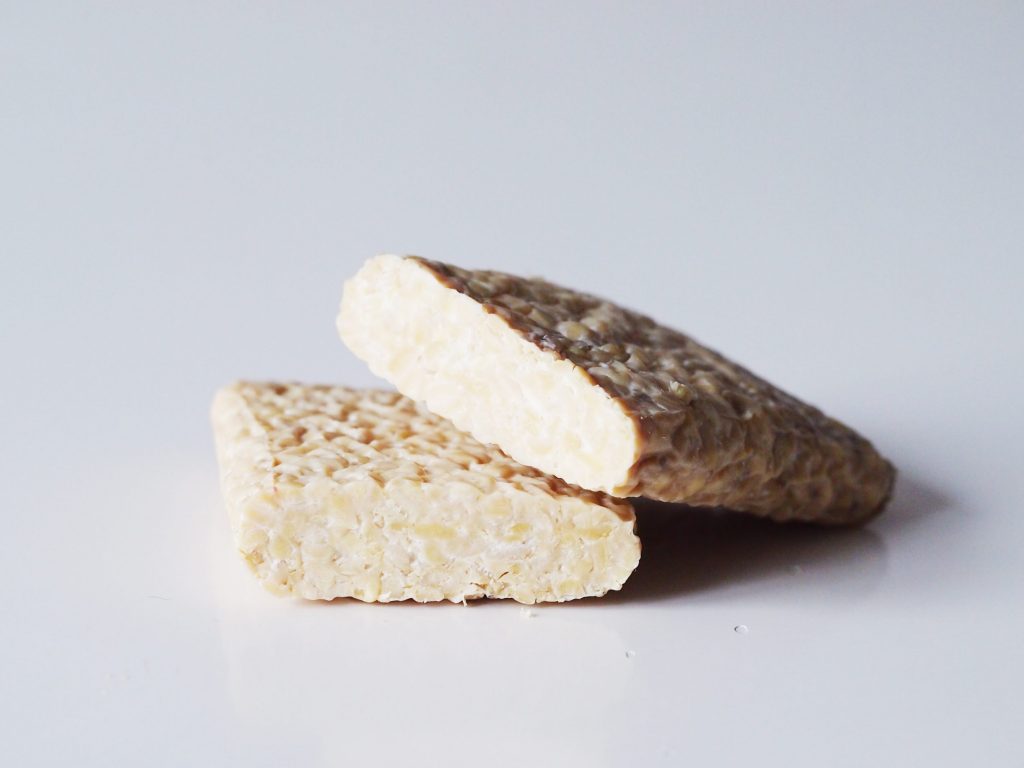
This is a soy-based food, with a few similarities to tofu. The difference is that tempeh involves the fermentation of soybeans, which leads to this food being rich in probiotics and protein. So this is good news for those who are exercising hard, or may be concerned about protein intake – just add some tempeh to your meals.
Tempeh is particularly high in prebiotics, which contains the fiber that ‘feeds’ the healthy bacteria in your gut. Not only is tempeh going to aid your all-round health and digestion, but it’s also packed with micronutrients like iron, riboflavin, niacin, and magnesium.
It’s truly a great food for the vegan who is health-conscious, and likes to train often. Perhaps if you’re a vegan couple, including this in your shared meals together would be a great, healthy bonding experience.
6. Miso
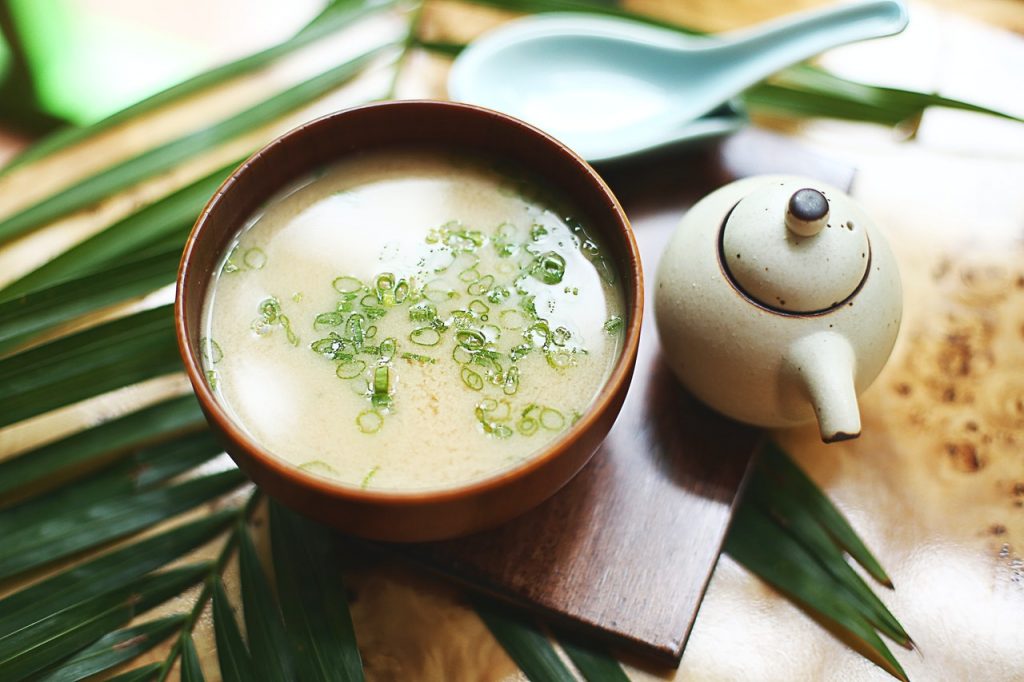
Miso is especially rich in anti-oxidants, various B vitamins (including and especially B6), and has been used traditionally as a Japanese soup.
It’s also fantastic for feeding the beneficial gut bacteria. But make sure that if you’re using Miso as a soup, that it’s warmed, but not boiled, as boiling it will destroy the probiotic bacteria.
Miso is often used in salad dressings or stir fry sauces, in a wide variety of meals. Summer salads, salmon dressing, vegan stir fry meals with tofu/tempeh – the options are endless when it comes to this probiotic food (mixing in 2-3 of the foods/drinks in this list would be a fantastic idea, in my opinion).
Summary
Incorporating some of these foods/drinks into your daily or weekly diet plan is not only very simple (especially in the case of the kombucha tea and the water kefir). But it could also be one of the healthiest decisions you make, especially when combined with some fasting Read more.
From protection against illness, to improved mental health/mood, to improved energy levels without bloating and brain fog. Improving your gut health is an increasingly important focus, in a world of leaky guts and increasing rates of depression, so hopefully I’ve provided you with some inspiration and useful tips.









